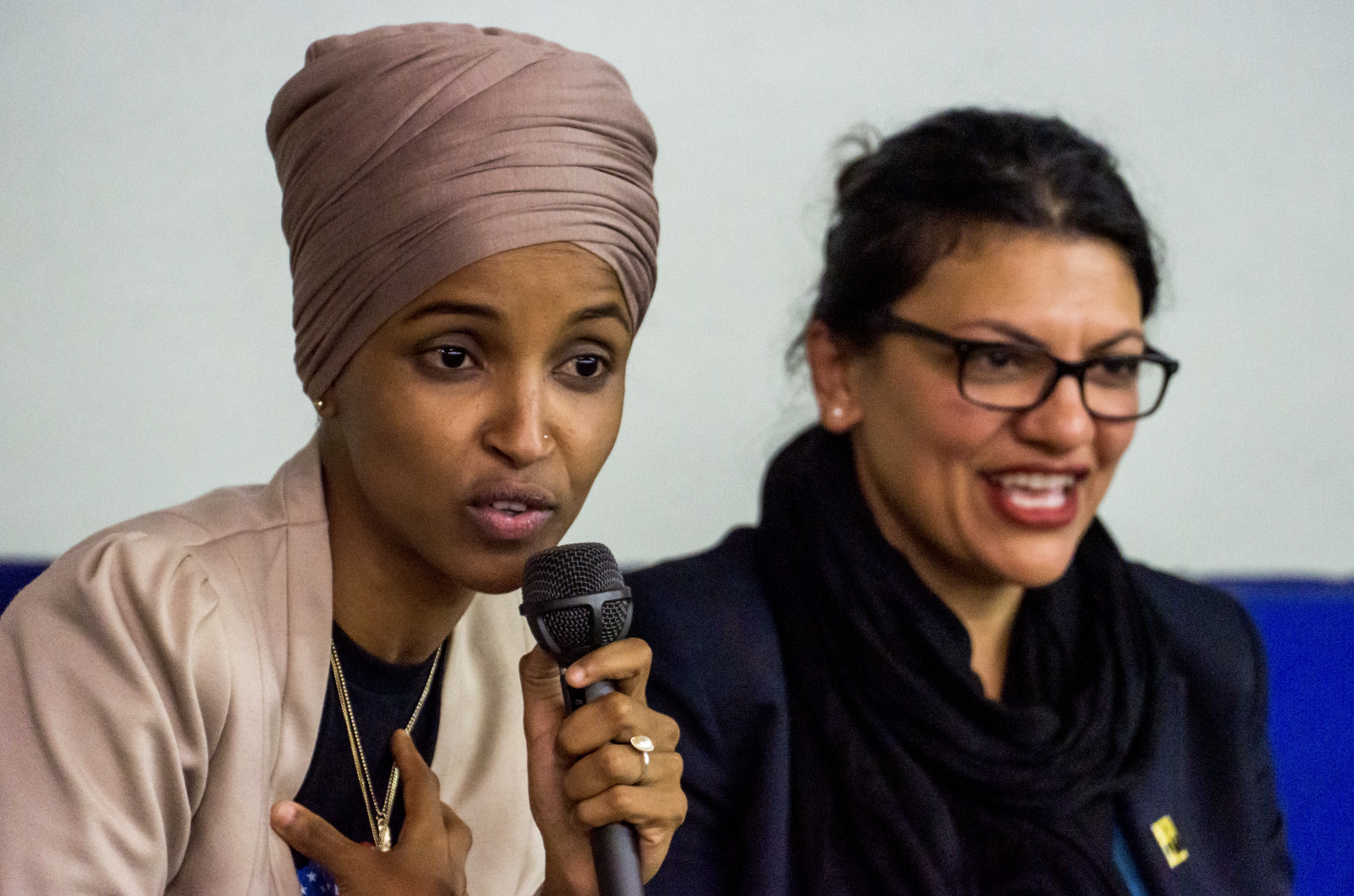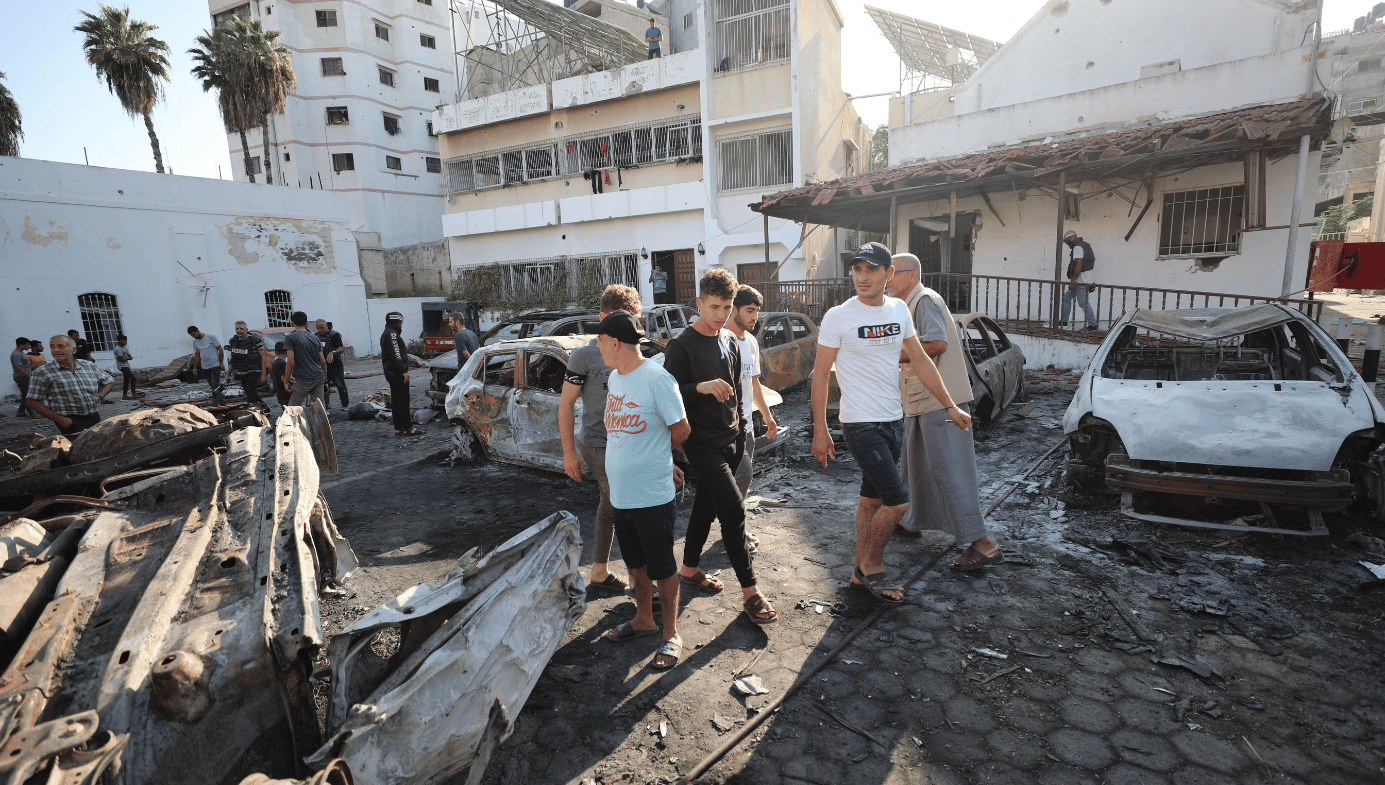Israel
Dead Civilians and the Allocation of Blame
Sometimes, we simply have to stop the bad guys—even at the cost of civilian casualties.

As the recent New York Times headlines in response to the explosion at the Al-Ahli Arab hospital demonstrate, when civilians die in wartime many papers rush to judgment without waiting for all the facts to come in. Israeli Strike Kills Hundreds in Hospital, Palestinians say, the paper initially declared on 17 October. The second headline, later that same day, only compounded the disastrous misrepresentation: At least 500 dead in strike on Gaza Hospital, Palestinians say. As it turns out, the Times—along with nearly every other mainstream media outlet, many of which follow that newspaper’s lead—got every aspect of the story wrong: It wasn’t an Israeli strike; there weren’t anywhere close to 500 fatalities; and the hospital building wasn’t destroyed. The early coverage even featured the misleading picture of a wrecked building that wasn’t the hospital.
The Times’ negligence is part of a pattern. Having studied the coverage of numerous rounds of hostilities in the region, I’m often struck by the differences between the initial media pronouncements about Israel’s wartime conduct and the far more honest and in-depth subsequent assessments.
In 2014, initial media reports claimed that 80 percent of the casualties of the military campaign in Gaza were civilians. I was immediately suspicious. How could the organization reporting these figures, the UN Office for the Co-ordination of Humanitarian Affairs, have obtained reliable information so quickly? As it turns out, it hadn’t. As several subsequent reports established, the UN relied on information from Hamas sources and failed to ask how many of the casualties were Hamas fighters. Even a cursory glance at the figures would have shown that a disproportionate number of those killed were young men—a statistic that immediately called into question the UN finding. Undoubtedly, many civilians have been killed in Gaza—tragically, civilians probably comprise more than 50 percent of the death toll there. As military historian William Eckhardt has pointed out, approximately half of the casualties of any war are likely to be civilians, and this proportion rises in dense, urban warfare.
In 2012, Israel was lambasted when a BBC war correspondent’s baby was tragically killed in Gaza. But a UN investigation later found that a Hamas rocket—rather than an Israeli military operation—was the probable cause of the child’s death. In 2014, a number of attacks took place in Gaza. Israel was roundly condemned for these, but later investigations suggested that they may have been perpetrated by Hamas. In July 2014, Israel was initially accused of firing the missile that hit Gaza’s al-Shifa hospital, resulting in numerous deaths, but postmortem investigations demonstrated that a Hamas rocket was the likely culprit. When innocents are killed, Hamas immediately points the finger at Israel, while Israel conducts a thorough investigation before coming to any conclusions. In the rush for a headline, the press often take their cues from Hamas—and are often proved wrong.
Israel does not have a spotless record of providing accurate information, of course. In either a rush to judgment or an effort to deceive, Israeli officials have sometimes given the press faulty information, as they did after initially blaming Palestinian militants for the death of Al Jazeera journalist Shireen Abu Akleh, and only correcting the inaccuracies after the damage has been done. But, in general, Israelis have a much better track record, as well as greater incentives to preserve their credibility, than Hamas does. When Gazan health officials say that 500 people have been killed, we should remember that these health officials work for a terrorist organization. People who are capable of murder are more than capable of lying.

In some situations, it should be obvious that Israel is probably telling the truth. When Israel outright denied having bombed the Ahli Arab hospital two weeks ago, that in itself should have given everyone pause. With some incidents that occur during wartime, it is inherently difficult to determine who is culpable. But it was obvious from the get-go that we would get to the bottom of this case quickly, since the claims could be checked against video, photo, and radar evidence, as well as forensic analysis and intelligence intercepts. This was not a situation in which warring parties were shooting at each other out of public sight. Israeli officials must have known that to be discovered to have lied about this would have cost them much-needed public support—which was especially important in the run-up to Biden’s visit the following day. They also knew that US and other intelligence agencies would be able to independently verify what happened. Israeli officials had every motivation to tell the truth. The media should have known that and, at the very least, withheld judgment.
Some in the news media accuse Israel of intentionally targeting noncombatants in Gaza, but the number of casualties does not bear this out. If Israel wanted to, it could wipe out the entire population of Gaza in a matter of hours. If mass casualties were the goal—as they are for Bashar Assad in Syria—hundreds of thousands of people would have been killed in the conflict.
Every civilian casualty in Gaza undermines Israel’s standing within the international community and hence its ability to fight this war. It’s overwhelmingly in Israel’s interest to minimize the numbers of dead civilians. Of course, individual Israeli commanders or soldiers may not always act with pure intentions or abide by government policy or military orders. But these are isolated incidences of malicious or inhumane conduct carried out by wayward soldiers. If caught, the malefactors will likely be severely punished by the Israeli authorities. Any army will contain some individual bad actors. We should not therefore imply that the government has a policy of intentionally harming civilians.
A more plausible accusation is that Israel is being careless and callous in prosecuting the war and is using disproportionate force. Just war theorist Michael Walzer argues that, in assessing whether an army is acting “proportionately,” we should ask ourselves the following question: Are they taking concrete steps to minimize the risks they impose on civilians, even at risk to themselves?
When we consider Israel’s actions in Gaza, the question is complicated by two aspects of this specific conflict: the theatre of war is a densely populated urban area and the adversary, Hamas, deliberately puts its own civilians in harm’s way. Take a typical scenario: Israel determines that a building houses several Hamas commanders and a cache of weapons, but also three families. The IDF calls the residents three times, ordering an immediate evacuation, and then sends a warning missile—“a knock on the roof”—and then, finally, destroys the building, without knowing whether the inhabitants were able to leave beforehand. Are such actions justified?

By the standards of modern warfare, the IDF is extremely judicious in its use of deadly force. Most armies, including those of Western countries, would not go to such lengths to minimize civilian casualties. But this does not get the attacking army entirely off the hook. Morally, these are muddy waters.
Countries inevitably make mistakes amid the confusion of war. In May 1999, NATO forces accidentally bombed the Chinese Embassy in Belgrade. A New York Times investigation revealed that “the bombing resulted from error piled upon incompetence piled upon bad judgment.” Tragic human errors of this kind have occurred in every war that has ever been fought. One such took place in 2014, when Israeli forces killed four children playing on a Gaza beach, mistaking them for the Hamas terrorists that Israeli intelligence had reported to be in the vicinity. As an IDF spokesperson later acknowledged, the soldiers should have been able to recognize that the kids on the beach were not Hamas operatives. In this case, the military personnel involved did not exercise maximum judiciousness and their error resulted in the tragic and avoidable loss of life.
Even in just wars, innocent people die—but that doesn't make those wars unjust. US forces reportedly killed 30,000 civilians in the war against ISIS. I doubt every American military action taken during that war was justified. But had the US not combated them, ISIS would have rampaged through the Middle East unopposed, seizing territory and raping and murdering civilians along the way. Overall, the American war effort was necessary, and I suspect that the high numbers of casualties were unavoidable. Sometimes, we simply have to stop the bad guys—even at the cost of civilian casualties. Thoughtful people may disagree as to the necessity of a particular action taken during wartime or the moral conduct of one of the warring parties.
Even in cases when we can apportion some of the blame for civilian casualties to Israeli carelessness, the lion’s share of culpability still usually resides with Hamas. To see how, let’s take another scenario: Israel finds out that a medical clinic has been used as a weapons storage and missile launch site. The IDF doesn’t fully investigate the situation or provide adequate warnings, and, in the heat of battle, destroys the medical clinic, killing innocents. Israel bears some responsibility for its lack of caution in choosing a target of attack. The soldiers should have checked that there were no civilians present before firing. However, by using the medical clinic as a military base, Hamas intentionally endangered Palestinian civilians, which makes it far more culpable for their deaths. Contrary to the simplistic judgments we often hear, it is possible for multiple opposing parties to be morally responsible for the same action, to varying degrees.
It is always a tragedy when innocent people die as a result of warfare. But the mainstream media needs to conduct thorough investigations and ponder the complexities of the situation carefully before pronouncing on who is to blame for those deaths.






